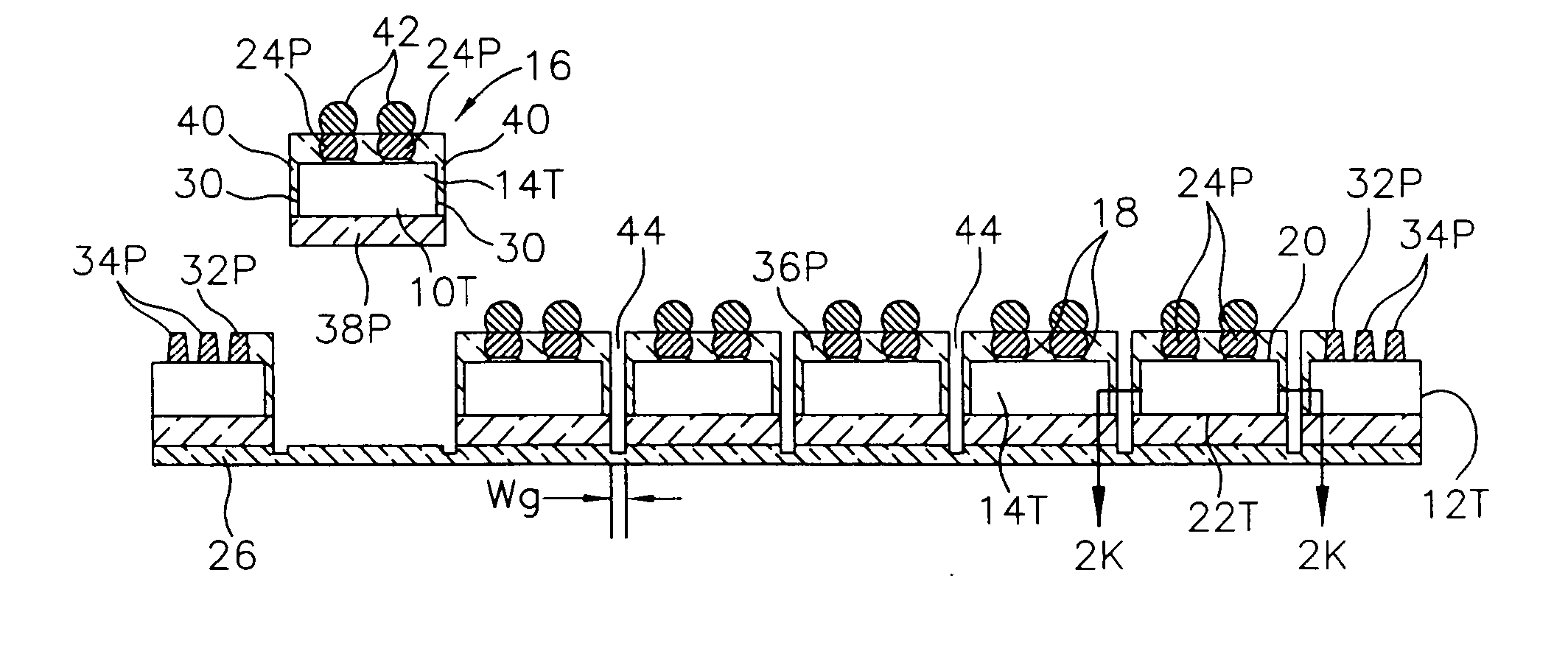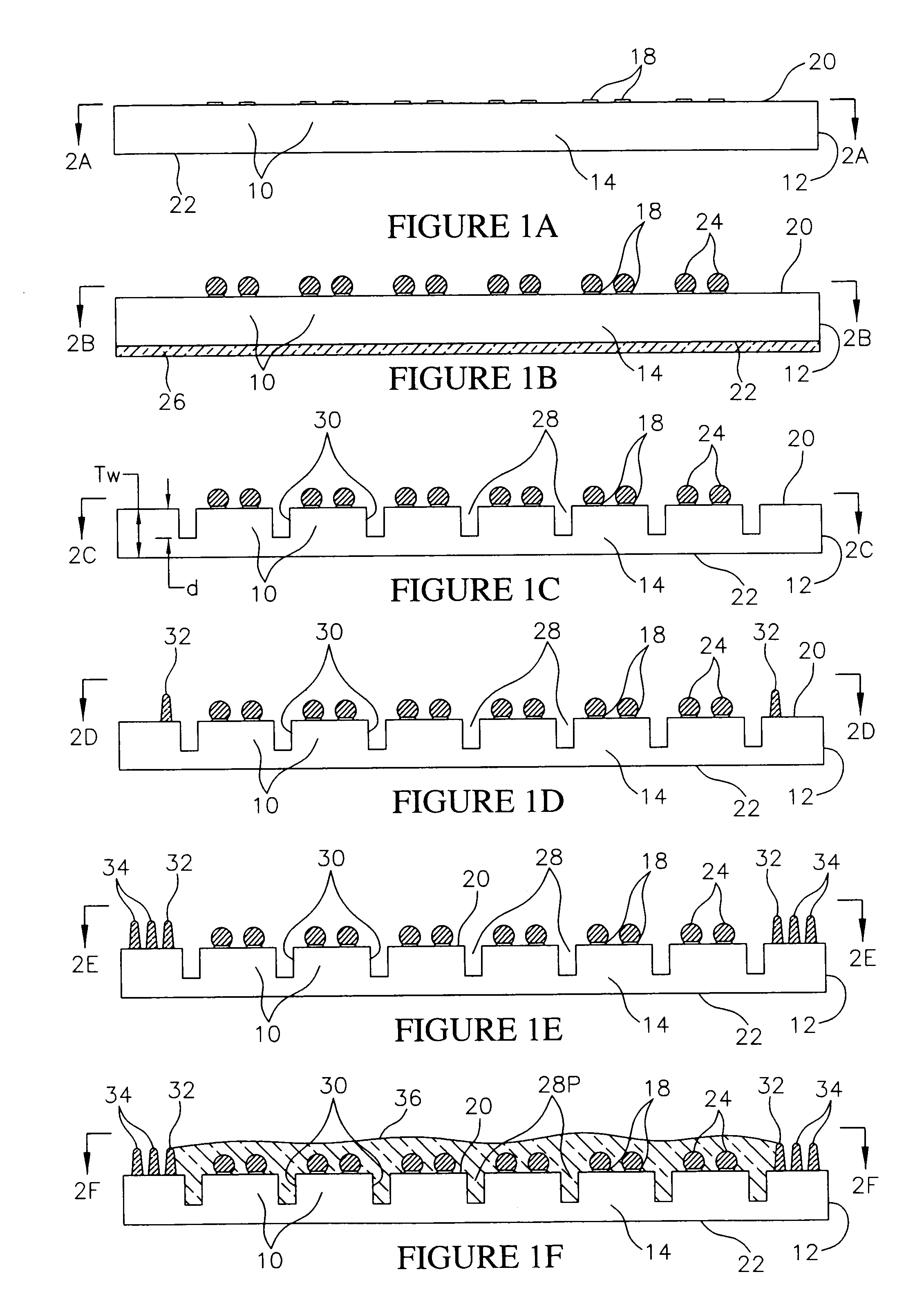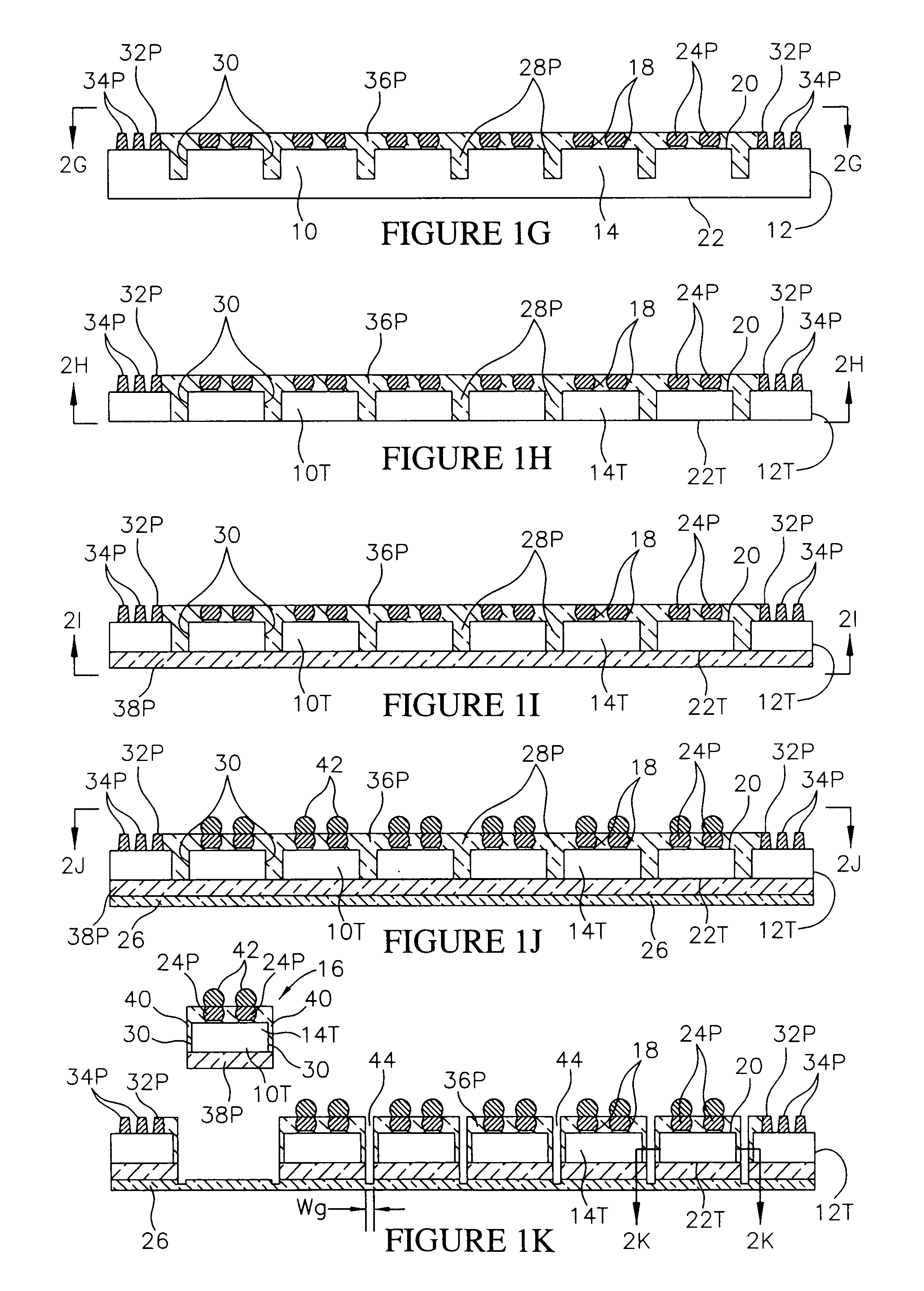Encapsulated semiconductor components and methods of fabrication
a technology of semiconductor components and encapsulation, applied in the direction of semiconductor devices, semiconductor/solid-state device details, electrical devices, etc., can solve the problems of relative fragile semiconductor substrates that are susceptible to cracking and chipping, and achieve the effect of facilitating the testing of components
- Summary
- Abstract
- Description
- Claims
- Application Information
AI Technical Summary
Benefits of technology
Problems solved by technology
Method used
Image
Examples
first embodiment
[0114] Referring to FIGS. 1A-1K, 2A-2K and 3A-3J, steps in the method for fabricating a first embodiment semiconductor component 16 (FIG. 1K) in accordance with the invention are illustrated. As will be further explained, each completed component 16 (FIG. 1K) contains a single die encapsulated by polymer layers on six surfaces. The component 16 is thus referred to as a “6X component”.
[0115] Initially, as shown in FIGS. 1A, 2A and 3A, a plurality of semiconductor dice 10 are provided, for fabricating a plurality of semiconductor components 16 (FIG. 1K). The dice 10 can comprise conventional semiconductor dice having a desired configuration. For example, each die 10 can comprise a dynamic random access memory (DRAM), a static random access memory (SRAM), a flash memory, a microprocessor, a digital signal processor (DSP) or an application specific integrated circuit (ASIC). The dice 10 and the components 16 can have any polygonal shape. In the illustrative embodiment, the dice 10 and t...
third embodiment
[0220] Referring to FIGS. 13A-13G, steps in a method for fabricating a third embodiment component 16E (FIG. 13F) are illustrated. In this embodiment, the components 16E (FIG. 13F) are singulated using an etching process. In addition, each component 16E (FIG. 13F) is hermetically sealed on five sides, such that a “5X component” is provided.
[0221] Initially, as shown in FIG. 13A, a plurality of semiconductor dice 10E are provided on a semiconductor wafer 12E, substantially as previously described. Each die 11E includes a semiconductor substrate 14E containing integrated circuits. In addition, the wafer 12E and each die 10E includes a circuit side 20E (first side) wherein the integrated circuits are located, and a back side 22E (second side). Each die 10E also includes a pattern of die contacts 18E on the circuit side 20E in electrical communication with the integrated circuits thereon. The die contacts 18E can be constructed like the previously described die contacts 18 in FIG. 1A, or...
fourth embodiment
[0238] Referring to FIGS. 15A-15F, steps in a method for fabricating a fourth embodiment semiconductor component 16-1X (FIG. 15F) are illustrated. The semiconductor component 16-1X (FIG. 15F) contains a single semiconductor die 10-1X encapsulated on only the circuit side thereof, and is thus referred to as a 1X component.
[0239] Initially, as shown in FIG. 15A, a plurality of semiconductor dice 10-1X are provided on a semiconductor wafer 12-1X substantially as previously described. Each die 10-1X includes a semiconductor substrate 14-1X containing integrated circuits. In addition, the wafer 12-1X and each die 10-1X includes a circuit side 20-1X (first side) wherein the integrated circuits are located, and a back side 22-1X (second side). Each die 10-1X also includes a pattern of die contacts 18-1X such as redistribution pads or bond pads, on the circuit side 20-1X in electrical communication with the integrated circuits thereon.
[0240] Next, as shown in FIG. 15B, contact bumps 24-1X ...
PUM
 Login to View More
Login to View More Abstract
Description
Claims
Application Information
 Login to View More
Login to View More - R&D
- Intellectual Property
- Life Sciences
- Materials
- Tech Scout
- Unparalleled Data Quality
- Higher Quality Content
- 60% Fewer Hallucinations
Browse by: Latest US Patents, China's latest patents, Technical Efficacy Thesaurus, Application Domain, Technology Topic, Popular Technical Reports.
© 2025 PatSnap. All rights reserved.Legal|Privacy policy|Modern Slavery Act Transparency Statement|Sitemap|About US| Contact US: help@patsnap.com



